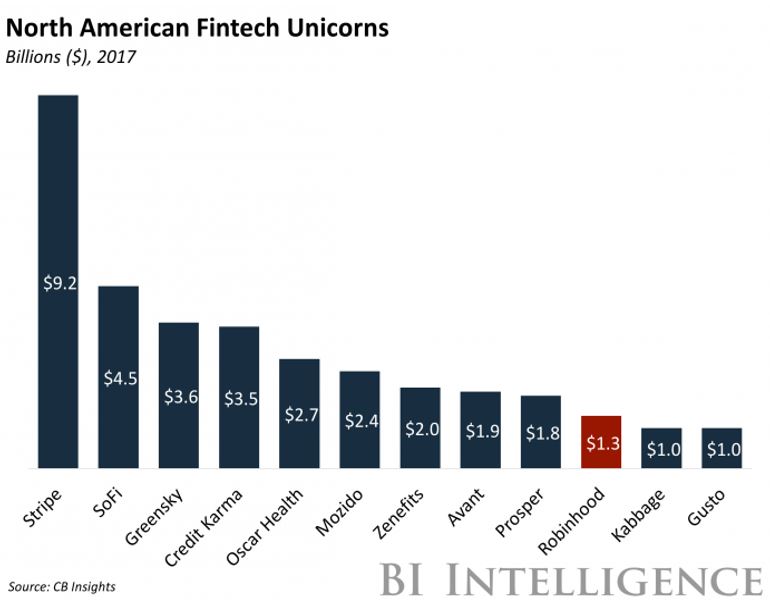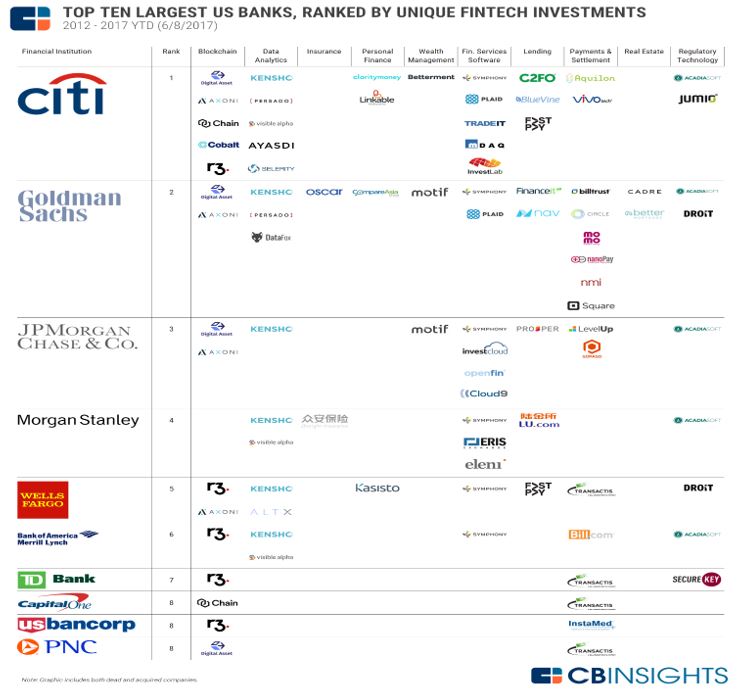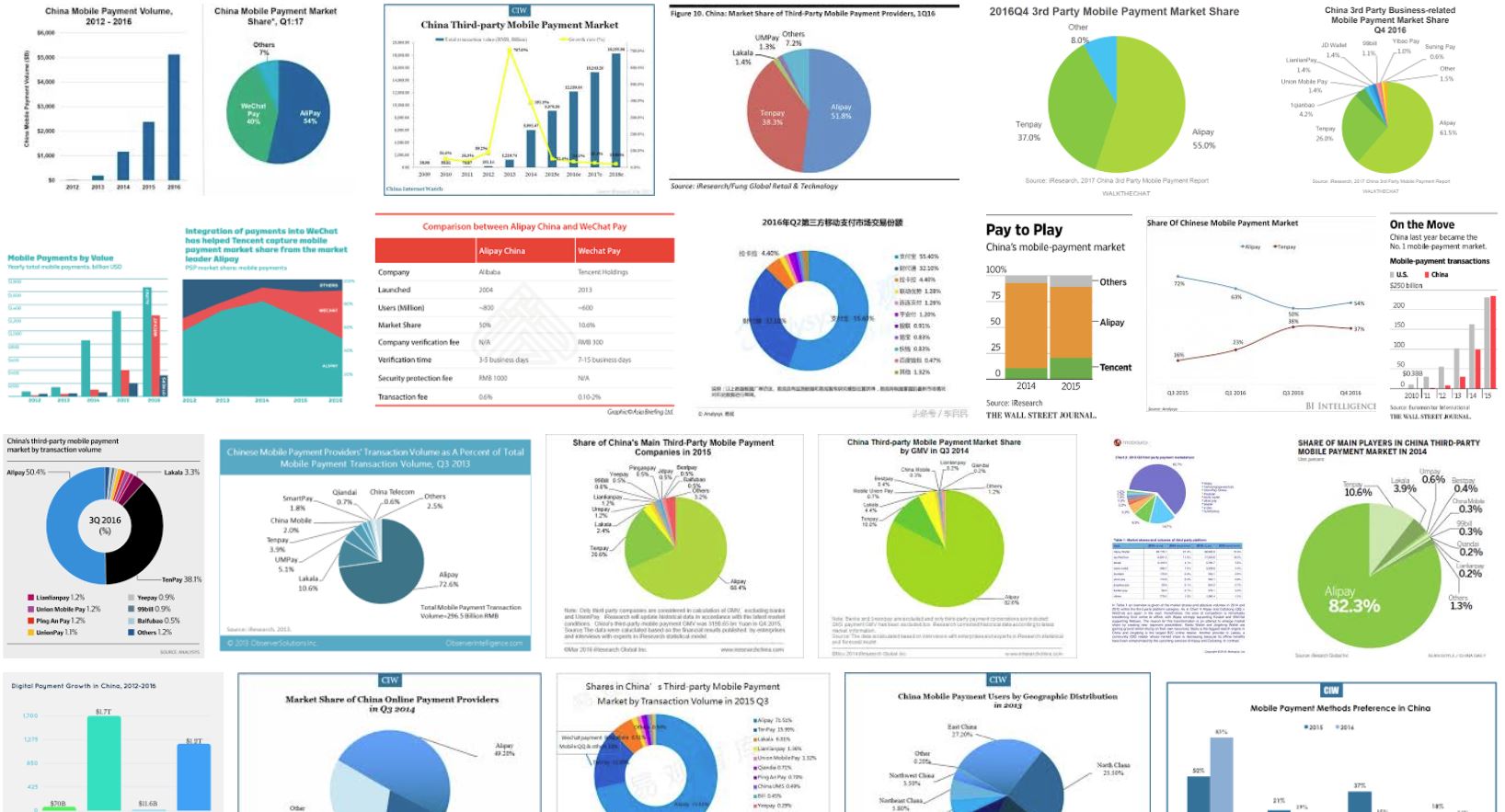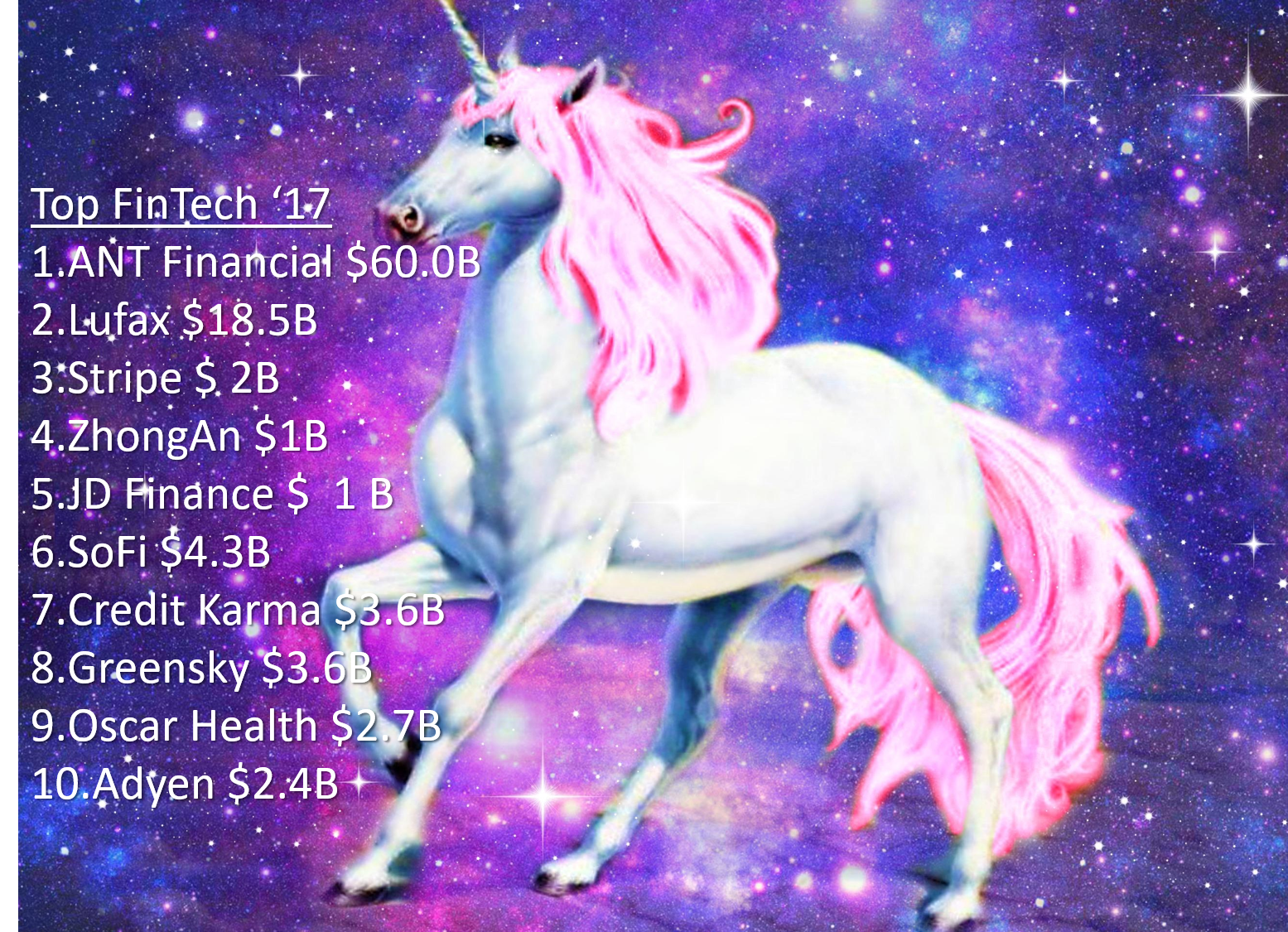The WeChat App is the one app that rules all interactions in China with Alipay increasingly falling behind. North Americans are afraid of bundled information. Everyone in China is purchasing with their information bundled for commercial interest and as well as the State. What is clear is that China is ahead of the Western world in mobile technology but then again so is Africa….
Tag Archives: China
FinTech by the Numbers
Where do the Unicorns Play? Where the bulk of high value unicorns based?
First of all, what are Unicorns: a) they are startup firms that have revenue of $1 billion dollars or more, b) they are privately held.

When we think of startups (in particular unicorns), we in the West tend to think of Silicon Valley is the epicenter with New York then maybe London, Berlin etc etc as hubs. There are many more locations where startups sprout obviously but Silicon Valley has the gravitational pull. Why would I start a scaling business in the advertising space anywhere but New York for example? However, when you look at the list of startups that meet the two criteria above, you start to wonder if you should have been born in China!
- Uber $68B
- Ant Financial $60B
- Didi Chuxing $50B
- Xiaomi $46B
- AirBNB $29B
- SpaceX $20B
- WeWork $20B
- Palantir $20B
- Com $19B
- China Internet $18B
China is a new epicentre. Certainly The Economist & the Wall Street Journal has emphasized China’s rise. Note that this list above was generated in February 2017. It encompasses all kinds of startups but looking at the numbers most of the “startups” are Chinese based. The issue here is that there are great startups all over the world, from Kenya to Moscow, but without the scale of a 350 million person, relatively homogeneous state (language-wise) or a 1.3 billion person, emerging uni-lingual state (Cantonese is being phased out!); you’re startup is unlikely to get unicorn status.
So, it actually obvious on the one hand, yes, the US and China are large countries. So therefore their startups raise more capital, see here: The data tells is that unicorns are investment magnets.
- Top 5 $257 B
- Next 5 $ 97 B
- Top 10 $354 B
- 48% of total valuations
Evaluating further, the top value unicorns are in the following countries, according to CBI:
Top 10 Next 10
U.S. 5 4
China 5 3
India 0 2
Sweden 0 1
Sweden’s sole contribution is Spotify by the way. Of course, it’s not just size, it’s culture, it’s infrastructure and it’s the people that are attracted to where there is money to develop innovative solutions in a serious manner.
Take a look at this list below:
- ANT Financial $60.0B
- Lufax $18.5B
- Stripe $ 2B
- ZhongAn $1B
- JD Finance $ 1 B
- SoFi $4.3B
- Credit Karma $3.6B
- Greensky $3.6B
- Oscar Health $2.7B
- Adyen $2.4B
Note that these companies are in fact financial payments services that have been spun off from the likes of TenCent (media) and Alibaba (e-commerce); ie. China’s emerging giants.
Welcome the 1980s again
The 80s saw the emergence of the Leveraged Buy Outs from folks like (Kohlberg Kravis Roberts & Co) KKR’s Henry R. Kravis when he was worked to take over RJR Nabisco from the formidable F.Ross Johnson from the University of Toronto. Today, we see a resurgence in acquisitions. This is particularly pronounced in the consumer goods segment. The big 6 consumer package goods brands are buying up any new brand names that emerge in the digital age. For example, Unilever bought the following firms in 2016:
- Pukka Herbs
- Hourglass
- AdeS
- Living Proof
- Seventh Generation
- Dollar Shave Club
Meanwhile, Nestle just bought Blue Bottle. With Kraft and Heinz merging, they are trying to drive efficiency.
FinTech in America: Protecting the Banks
Why does US/Canada have a smaller FinTech footprint than China? Well China’s government wants disruption, while the US and Canada have entrenched interests in their institutions; see Canada for a corporatist example. The established players own the market place of innovation. The US has a few large players but the established players still rule the roost.
 American/Canadians banks as more risk averse: One phenomenon is that Canadian banks are hiring at a lower rate even thought the economy is in an upturn. Usually, as the economy improves banks hire more staff. However, since the credit crunch, things have changed. Banks in Canada are highly regulated to begin with and they are highly protected, they also anticipate a significant increase in competition from FinTech. Management knows that the gravy train has dissipated and disruption may be coming soon. In addition, bank management wants to be on the winning side rather than the ones rearranging the deck chairs on a sinking ship of traditional banking.
American/Canadians banks as more risk averse: One phenomenon is that Canadian banks are hiring at a lower rate even thought the economy is in an upturn. Usually, as the economy improves banks hire more staff. However, since the credit crunch, things have changed. Banks in Canada are highly regulated to begin with and they are highly protected, they also anticipate a significant increase in competition from FinTech. Management knows that the gravy train has dissipated and disruption may be coming soon. In addition, bank management wants to be on the winning side rather than the ones rearranging the deck chairs on a sinking ship of traditional banking.
Of the top 5 discussion items of any major Canadian bank’s board of directors, you have 1) Risk Management (exposure to losses), 2) Cost drivers in the bank, 3) Expansion out of Canada, 4) Succession planning (employee retention), 5) What’s going on in FinTech? So as a result in the last 5 years, each of the major banks in Canada have created innovation labs designed to snatch up talent in the Toronto area. In the process, they may be inadvertently be binding good people into pointless “me too” initiatives. A lot of that talent in these hubs may simply be an insurance policy in the event that disruption does occur; management can legitimately point to the fact that we did in fact have a strategy on the table. Optics over substance is a theme in Canada. Better to run a pilot to say we did something then take the risk and follow through on that pilot project. We’re risk averse, protected by regulations that prevent American banks from amalgamating and scaling within Canada.

More to comes as we investigate FinTech further.
Lessons from a Masters In Business Administration: MBAs Inter-Semester Travel
 MBAs Inter-Semester Travel: Go to Brazil, India, China, or Russia, which is now the standard inter-semester trip for MBA students. MBAs have an arrogance to them. Do not go to these places with hand sanitizer in your wallet or purse. These trips are liable to be dominated by booze, clubs, shops, and corporate entertainment. These places are where all the venture capitalists are going. Being a Venture Capitalist is easier than climbing the corporate ladder, all you need is one major success, then you will have 100s of entrepreneurs pitching their ideas, and you get to pick the best ones. Although, it is very risky, and many VCs fail.
MBAs Inter-Semester Travel: Go to Brazil, India, China, or Russia, which is now the standard inter-semester trip for MBA students. MBAs have an arrogance to them. Do not go to these places with hand sanitizer in your wallet or purse. These trips are liable to be dominated by booze, clubs, shops, and corporate entertainment. These places are where all the venture capitalists are going. Being a Venture Capitalist is easier than climbing the corporate ladder, all you need is one major success, then you will have 100s of entrepreneurs pitching their ideas, and you get to pick the best ones. Although, it is very risky, and many VCs fail.
2 Years of Banking or Consulting is a Plus: for getting into an MBA Program, some experience in consulting or banking is a major advantage. You will need to be rather tough minded because you might get depressed with all the analysis and 18 hours days. MBAs are insecure overachievers.
[This is a synopsis of several books on the MBA experience including What They Teach You At Harvard Business School by P.D. Broughton]
Made in China: How China Become A Communist State
This is a documentary that details the rise of Mao, and modern China.
China Is Changing
Understanding Chinese culture will be essential for future development around the world. China’s Yang Lang is a game-changing public figure. In China, transparency is becoming increasingly influential. Microblog is growing in China with millions and millions of bloggers. Recent graduates of universities in China are extremely underpriced, and should consider living abroad to gain a greater market value. Urbanites move back to rural China to help spread new ideas. The income inequality is worse than the US, but unlike the US, there is a strong sense that this inequality is unjust. China is soon to surpass the US at luxury bags even though they are far less affluent. Like Russia, Chinese are becoming obsessed with status: “I would rather cry in a BMW than laugh on a bicycle.” Social justice is the top issue for microbloggers. This is what is happening in China, however Yang Lang does not address the one-child policy which will likely lead to a spike in demand for mail order brides from around the world.


